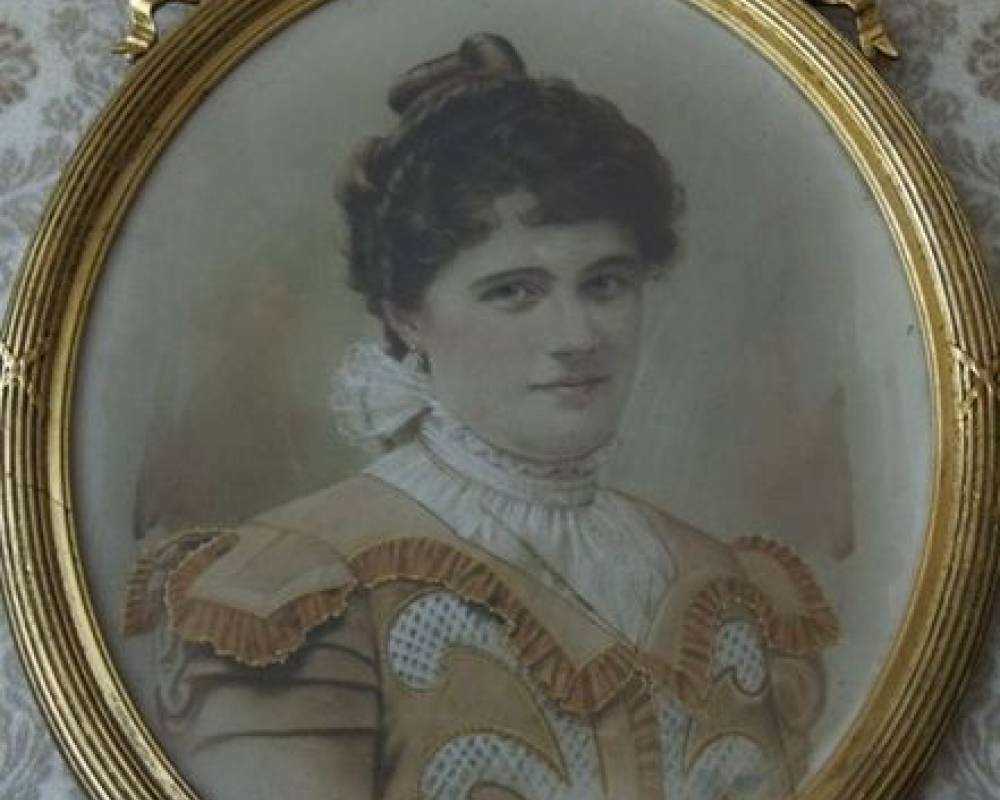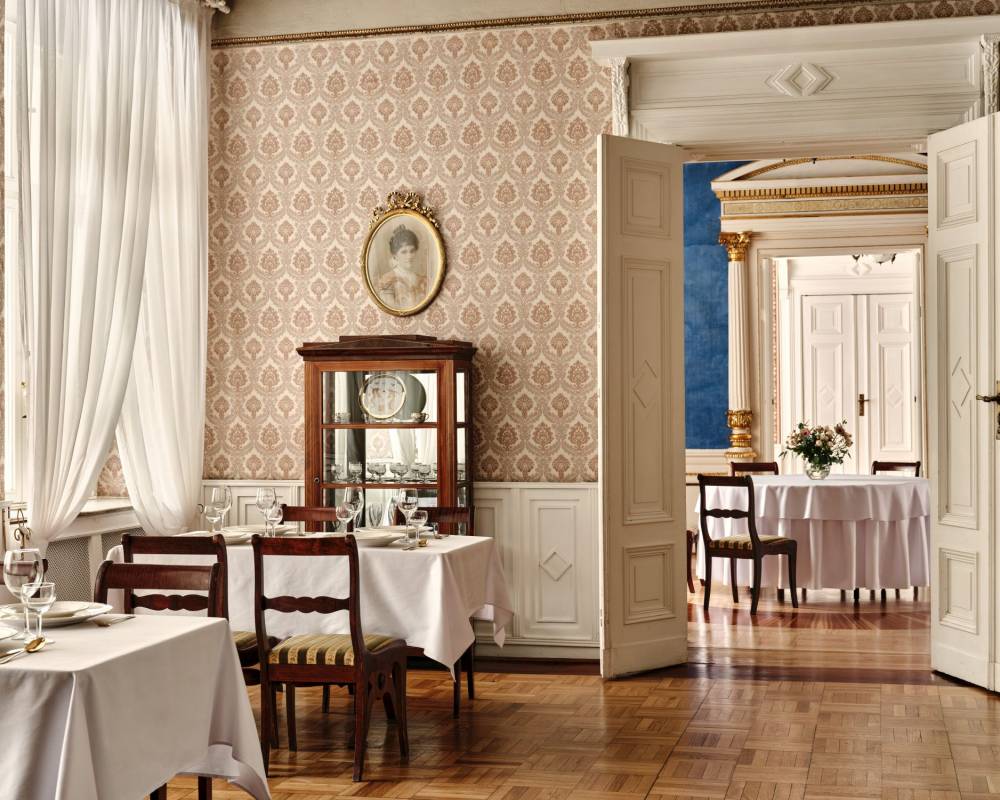The legend of the Black Lady
On dark nights, especially in winter, the carved staircase of the chateau in Będlewo sometimes creaks gloomily.
A female figure in a large black hat glides down the stairs and corridors. In the darkness, it is no longer possible to discern the beauty of the beautiful Felicia. Silence and darkness pull with her through the sleeping palace.
More than 100 years ago, Felicia Potocka was one of the richest ladies in Wielkopolska [Greater Poland]. She was the beloved daughter of Bolesław Potocki, the wealthy owner of Będlewo, who excelled at managing his rapidly expanding estate. Her contemporaries remembered her open mind as well as her care for the village children. In addition, she was renowned for her great beauty, which is confirmed by surviving images of the beautiful brunette.
Bolesław's economic success attracted Count Maciej Mielżyński, heir to one of the best families in Wielkopolska [Greater Poland]. Mielżyński - an aristocrat, law student and promising painter - began his apprenticeship in Będlewo to learn farm management and modern agriculture. He came to learn from his father, but when he met his beautiful daughter, he completely lost his head for her. He immediately wanted to marry - but his declarations were not accepted. The Count could not accept this and in exultation decided to take his own life. He grabbed his own rifle and fired at himself.
The shot wounded Mielżyński, but non-fatally. Faced with such a dramatic reaction, the beautiful groundskeeper agreed to marry the desperate man; his father also gave his consent. The Count's wound soon healed and Felicja became Countess Mielżyńska.
The marriage, concluded under threat of suicide, was not a happy one. The romantic elation soon faded, neither was it sustained by the birth of the three children - Mielżyński lost interest in his beautiful wife and the couple practically led separate lives. The Count had little time for his family - he was much more absorbed by his rapidly developing political career, having become a Polish deputy to the Reichstag of Imperial Germany. Felicia took care of the children, spending long weeks alone. Sometimes her salvation came in the form of travel. Ten years after their marriage, the marriage was just an aristocratic sham and attempts to save it failed.
The beautiful, rich, and lonely countess had no shortage of admirers. We do not know whether any of them won her heart - but the impetuous Count Mielżyński had no doubts. One night in December, he burst into his wife's bedroom at her palace in Dakowy with a shotgun and shot Felicia and her nephew, Count Alojzy Miączyński, on the spot. The young count was known in Wielkopolska [Greater Poland] for his profligate lifestyle and debts. Today, it is unclear whether on that night Miączyński came to ask the beautiful countess for favours or his wealthy aunt for another loan. He certainly found himself in the wrong place at the wrong time.
The double murder in an aristocratic marriage reverberated throughout the country and Europe. Count Mielżyński brought himself to justice - and the court acquitted the established aristocrat in a secret trial, ruling that he had acted in defence of honour. Public opinion, however, was not as forgiving and the Count was subjected to a complete social boycott. He quickly sold the estate, left his children to his family and left Wielkopolska [Greater Poland], breaking off contacts completely. Soon afterwards, the First World War broke out, beginning a new chapter in his life.
However, the conjugal tragedy was not forgotten and affected the family for a long time. Felicia and Maciej children did not reconcile with their father. The Count gained a position as a military officer and politician, but years later died alone in exile. And the beautiful Felicia, on nights as dark as that december night, returns to the palace of her childhood and youth, where she was carefree happy for the last time.



